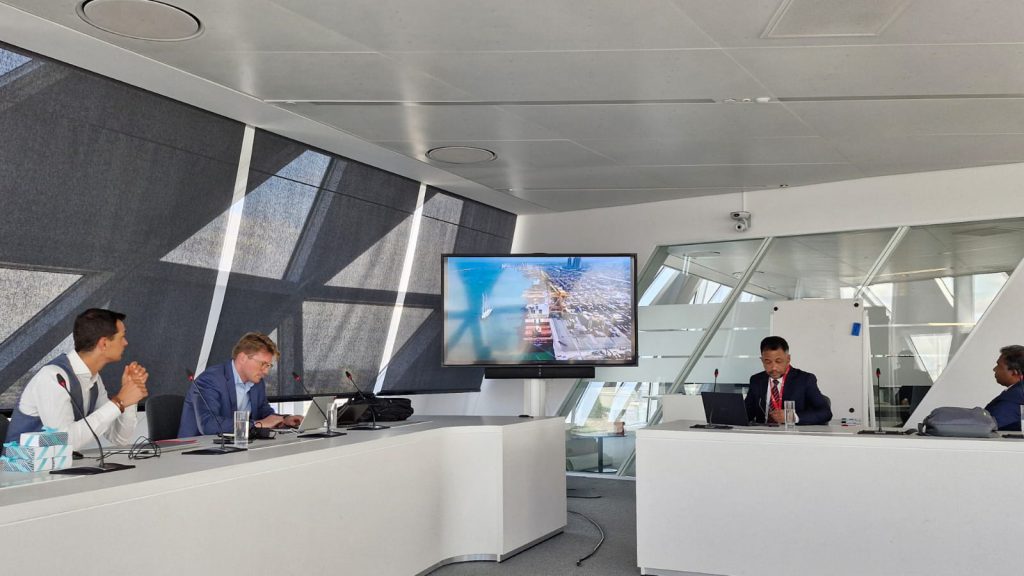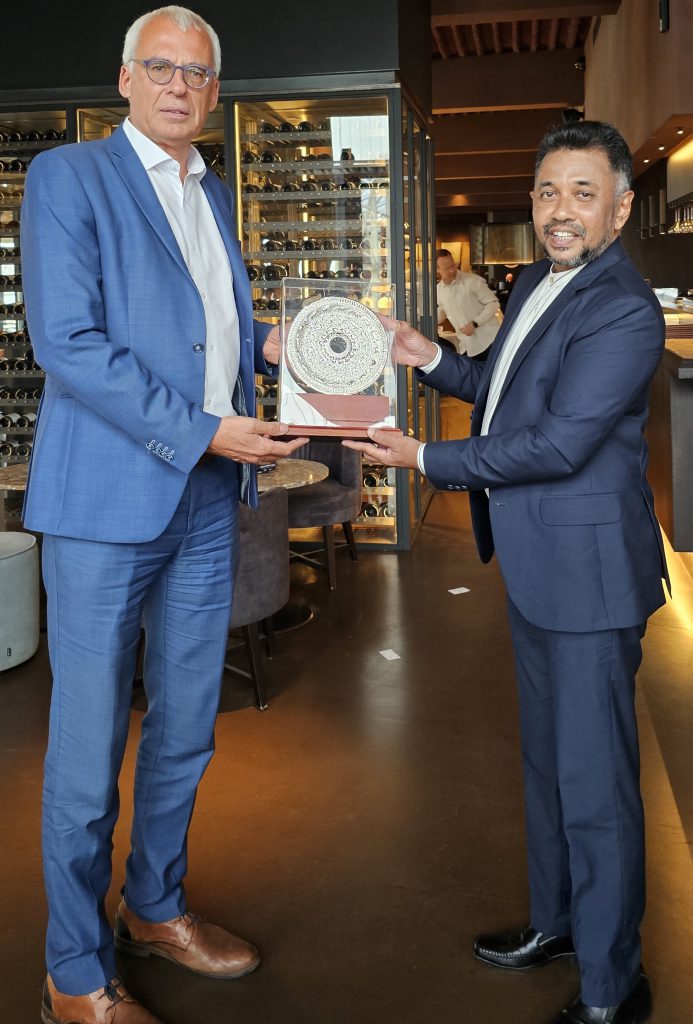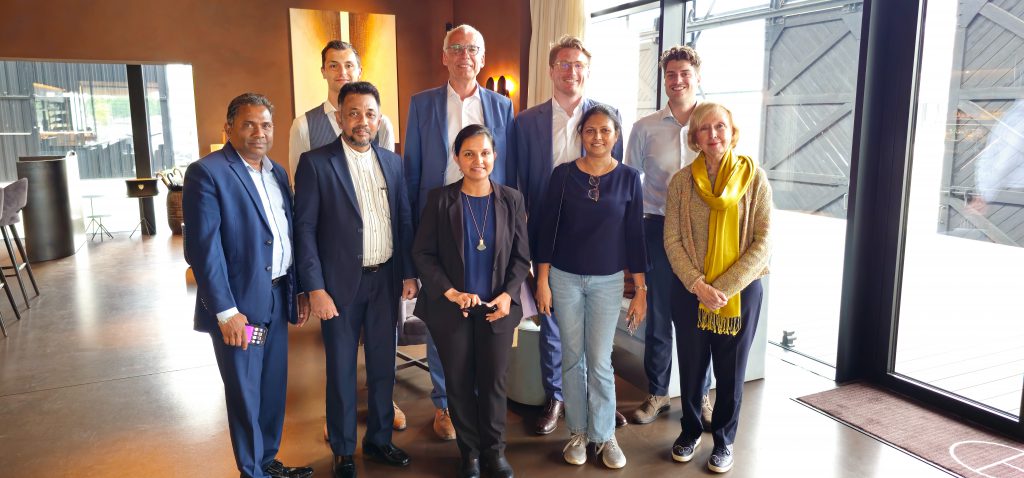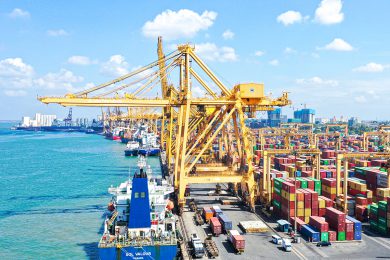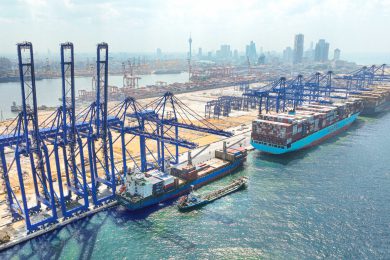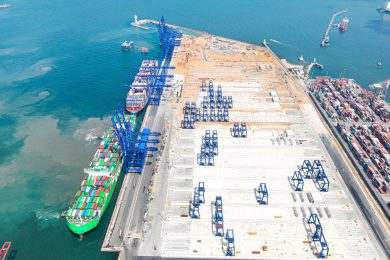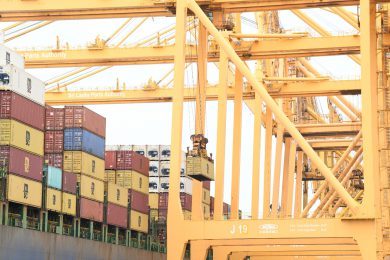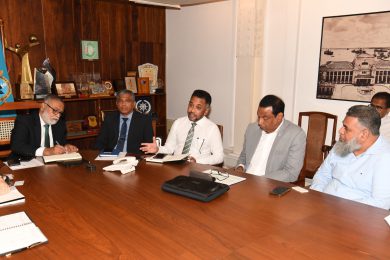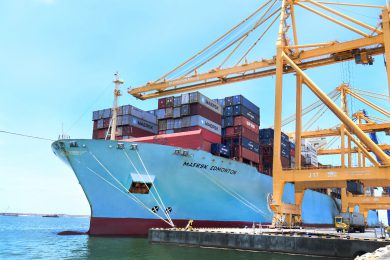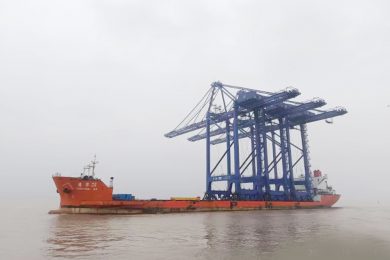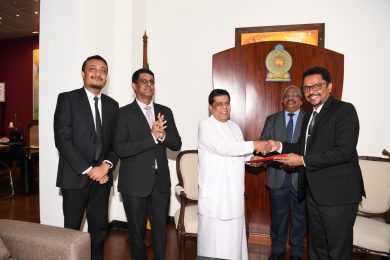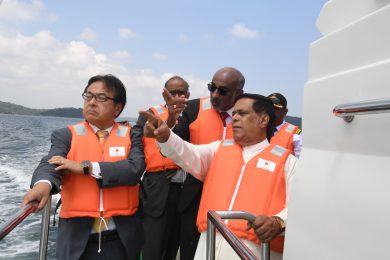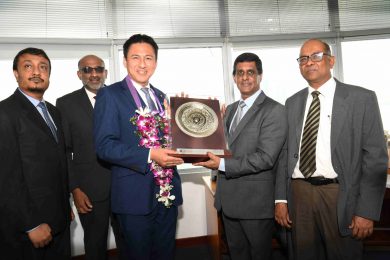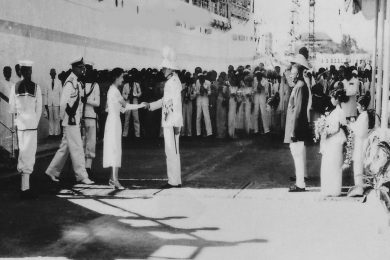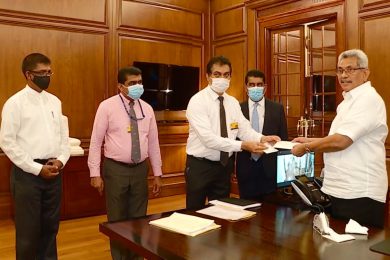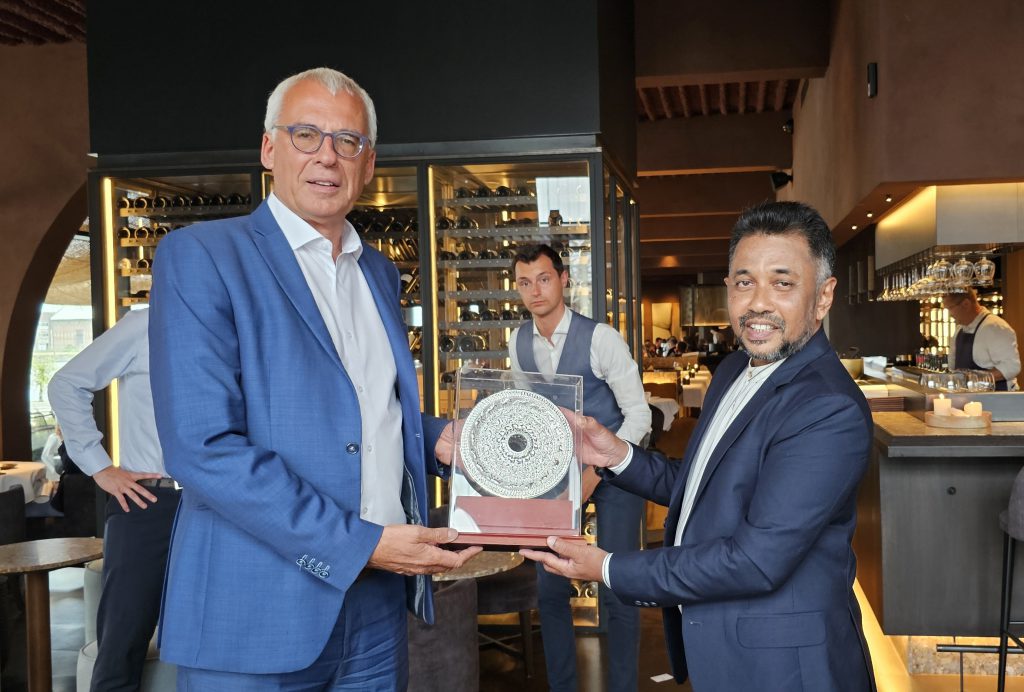During the meetings, both parties acknowledged the complex environment in which modern ports operate, including fluctuations in trade volumes, evolving regulatory requirements, rapid digital transformation, and increased environmental considerations.
A delegation from the Sri Lanka Ports Authority (SLPA) visited the Port of Antwerp-Bruges International (PoABI) in Belgium recently as part of ongoing efforts to strengthen collaboration between the two port authorities. The visit was organized by the Sri Lankan Embassy in Brussels allows a series of discussions held since 2024 and aims to formalize a Strategic Memorandum of Understanding (MoU) focused on operational cooperation, innovation, and sustainable development.
The SLPA delegation, led by Managing Director Eng. Ganaka Hemachandra, held meetings with senior officials from PoABI and representatives of the Antwerp/Flanders Port Training Centre (APEC), including Mr. Luc Arnouts, Vice President of International Relations and Networks at PoABI. The discussions explored potential areas of collaboration such as knowledge sharing, technical exchanges, investment opportunities, logistics coordination, green initiatives, and advancements in digital innovation and sustainability.
The Port of Antwerp-Bruges is one of Europe’s principal seaports, strategically situated at the intersection of major North Sea shipping routes and connected to Europe’s industrial heartlands via an extensive network of inland waterways. In contrast, the Port of Colombo, managed by SLPA, is South Asia’s foremost transshipment hub and a vital component of Sri Lanka’s economic infrastructure. Positioned along the East–West maritime corridor, Colombo provides access to fast-growing markets across Asia, Africa, and the Middle East.
The delegation’s visit included a tour of the DP World Antwerp Gateway terminal, located on the left bank of the Scheldt River. Operated by DP World Antwerp, the terminal is distinguished by its high level of automation, advanced technology, and intermodal connectivity, offering a practical example of modern port productivity and innovation. Additionally, the group visited the CMB.TECH Hydrogen Refuelling Station, a facility dedicated to the decarbonization of marine and industrial applications through hydrogen- and ammonia-powered technologies. These site visits provided the SLPA delegation with valuable insight into sustainable port operations and the implementation of digital technologies, which will inform future developments within Sri Lanka’s port system.
Beyond Colombo, the SLPA is actively engaged in modernization and development projects at other key locations, including Galle and Trincomalee. Galle Port, known for its historic significance and prime coastal setting, is being developed as a specialized tourism port designed to accommodate cruise liners and support recreational maritime activities. Trincomalee, with its natural depth and sheltered waters, offers considerable potential for bulk cargo handling and energy-related logistics, as well as opportunities for integrated industrial growth within its hinterland.
The timing of the visit was considered particularly relevant given the ongoing challenges and opportunities facing ports globally. The Sri Lankan delegation held in-depth discussions with PoABI executives, technical experts, and operational leaders to gain a comprehensive understanding of Antwerp-Bruges’ governance structure, operational practices, sustainability measures, and technological capabilities.
During the meetings, both parties acknowledged the complex environment in which modern ports operate, including fluctuations in trade volumes, evolving regulatory requirements, rapid digital transformation, and increased environmental considerations. There was mutual agreement that addressing these challenges effectively requires not only individual innovation but also collaborative, knowledge-driven approaches underpinned by strategic partnerships.
Eng. Ganaka Hemachandra commented on the importance of the cooperation, stating: “The Port of Colombo and our regional ports stand to benefit significantly from Antwerp’s advanced expertise in terminal operations, digital transformation, green initiatives, and sustainability frameworks. This collaboration is key to enhancing our contribution to the global supply chain.”
Digital innovation was highlighted as a central area of focus during the visit. Antwerp-Bruges is recognized for its leadership in port automation, data-driven operational management, and smart infrastructure, representing the forefront of the Fourth Industrial Revolution in maritime logistics. The SLPA delegation expressed strong interest in adopting similar technologies to improve cargo-handling efficiency, reduce vessel turnaround times, and increase transparency across the supply chain. The planned MoU is expected to support joint initiatives and pilot projects that will accelerate the digital transformation of Sri Lanka’s ports, thereby enhancing operational resilience and service quality.
Sustainability and environmental responsibility also featured prominently in the discussions. Both ports share a commitment to reducing carbon emissions, promoting responsible waste management, and integrating green technologies into their operations. The emerging framework anticipates collaborative research efforts, the exchange of best environmental practices, and coordinated responses to meet stringent international environmental standards. This aligns with Sri Lanka’s national objectives to develop ports that are both efficient and environmentally sustainable, consistent with global climate commitments.
Logistics cooperation was another key topic. Antwerp-Bruges’ extensive hinterland connections by rail, road, and inland waterways complement Colombo’s strategic position within South Asia’s logistics network. The partnership aims to explore opportunities for improving multimodal transport links, enhancing supply chain integration, and addressing infrastructure bottlenecks that affect the smooth flow of goods. Such cooperation is essential to ensuring that ports function not as isolated hubs, but as integral parts of a connected global trade ecosystem.
Formalising the MoU will establish a structured mechanism for continued knowledge exchange, technical collaboration, capacity building, and joint ventures. Regular high-level visits, technical workshops, and shared innovation projects are planned to strengthen the relationship and ensure both parties benefit from the partnership.
Officials present at the Antwerp meetings included Mr. Achille Sobry, Associate Manager and Regional Lead for the Indian Subcontinent at PoABI; Mr. Ken Houtevelts, APEC Training Executive and Key Account Manager for the Indian Subcontinent; Cpt. Sriyantha Arampath, Deputy Harbour Master (Trincomalee); Eng. H. B. A. Subhashini, Deputy Chief Engineer (Electrical); Ms. Thavishya Mullegamgoda, Minister Commercial of the Sri Lanka Embassy and Ms. Monique De Decker- Deprez, Honorary Consul for Sri Lanka in Antwerp.
